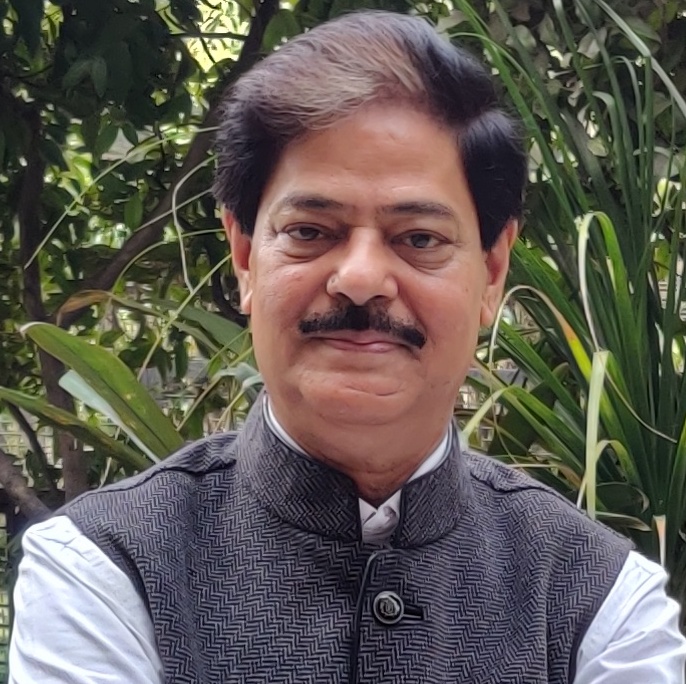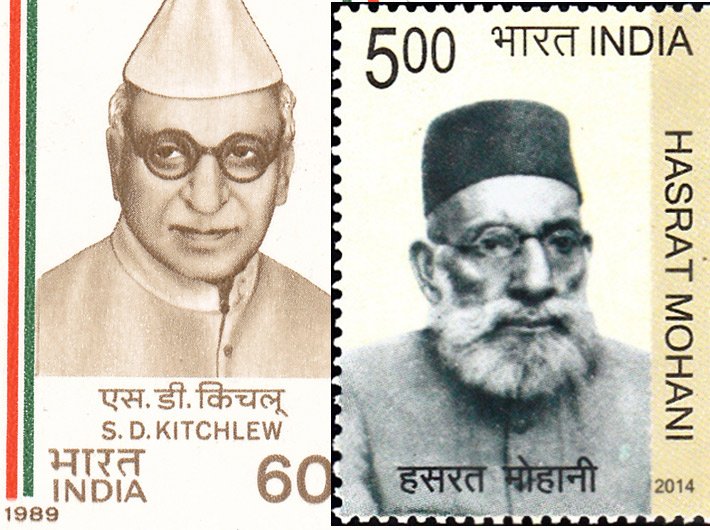In the times of rising hate, there has been a total blurring of distinction between the Nationalist Muslims and “Leagees”
The targeted attacks in recent times, both verbal and physical, against selected groups of people have become the subject of worry for all right-thinking citizens. The attacks emanate from strident, espousal of identity-based hegemony or subjugation, as the case may be. Typically, the attackers are ordinary mortals, not necessarily with criminal past or with police records, but persons who suddenly transform themselves into flash mobs, maiming, mauling and killing fellow human beings for reason, or no reason. The journey of non-criminals to criminal behaviour defies easy explanation.
One only hopes that the fringe does not gradually become the mainstream. But violence is also contagious. Then it should worry us. Lisa Gardner has put it in terse words but succinctly, “you can be the hunter or you can be the hunted.” Any good or bad thing, from smallest to gigantic, first incubates as an idea before it fructifies as an offering – whether assault on the Twin Towers or exploring the Mars for life. More dangerous than the verbal and physical attacks then is the ‘Idea’ behind as it creates unbounded probability of continued future violence.
It is evident that fraternity (in the society) and integrity (of the nation), among the fundamentals of the Constitution, are in question and the social fabric is under strain. Calculated attempts at demonizing, demoralizing and demeaning a section of the citizenry in 21st century for the ‘wrongs’ of history allegedly committed by ‘ancestors’ of the community under siege raise complicatedness and inner contradictions, including the problem of beginning and conclusion as also about selection or de-selection of events and episodes. The attempts hinge at selective abuse of memory politics for establishing domination and control through distortion of history or its misreading. Thus, history becomes a tool in the hands of some ideologues for negatively motivating their subjects and therefore it is not just an assumption that the causation, of history, as interpreted by some is fundamental to the emerging crisis.
Most of the hatefulness is derived by apportioning the blame of Partition on the Muslims. What is deliberately ignored is that the Muslims in India during that phase were badly divided on the issue of Partition and the creation of Pakistan. Thus a glaring omission in the study and understanding of pre-partition historical narrative has been the total blurring of distinction between the Nationalist Muslims as they were then called with pride and the supporters of the Muslim League, called the Leagees almost derogatorily by other Muslims. This important difference was gloated over in the aftermath of Partition, not necessarily with malaise but disregarded in the heat of the moment, causing immense heartbreak and psychological beating to the generations of Muslims who chose to remain in India as their country. Unfortunately, this lack of comprehension is a continuum and a yet to be corrected ‘historical wrong’, with the result that a history student learns to genuinely believe that the movement for freedom was led by only one community while the ‘other’ community was only involved with the business of creating Pakistan – that is the refrain of the mainstream popular imagination and narrative – which is a huge falsification, leading to widely held prejudice, bitterness and antipathy against the ‘other’.
Now, the misreading of history is by hiding the distinction between those amongst the Muslims who fought for the country’s liberation and those who started clamoring for a different homeland, though much later, as the decade dawned preceding Indian independence. The Muslim population had a huge chunk that opted to remain in this country as their motherland. It is a tragic irony that several Muslim organizations, innumerable individuals and leaders who fought against the policies of the Muslim League and joined their might with the mainstream leaders of the freedom movement remained unsung and are now getting derecognized. The struggle and efforts to preserve the composite culture of India by these gentlemen, and their wives in many instances, are totally hidden from the public view. The names of none of these freedom fighters would sound familiar to a high school student today, perhaps with the exception of Dr. Zakir Husain and Maulana Azad! Who has heard of Meher Ally, Hasrat Mohani, Bismil Azimabadi, Saifuddin Kitchlew, Khan Abdul Ghaffar Khan, Abdul Kadir Bawazeer, Obaidullah Sindhi, Ali Brothers, Mohd. Barkatullah Bhopali, Memon Abdul Hafiz Yusuf Ghulam Husein Mushtaq, Shah Nawaz Khan, Habib ur Rahman Khan, M. Z. Kiani, Waqar A. Khan, Shaukat Ali Malick, Hakim Ajmal Khan, Dr. Mukhtar Ahmad Ansari, Dr. Syed Mahmood, Maulana Mahmud Hasan, Mufti Kafaytullah, Dr. Mazharul Haque, Maulana Abdul Bari Firangmahli, Maulana Sulaiman Nadvi, Husain Ahmad Madni, Chaudhary Khaleeq uz Zaman, Nawab Mohd. Ismail Khan, Tasadduq Husain Khan, Sanaullah Khan Amritsari, Abbas Tayabji, just to name a few for brevity! Each of these and several others would need pages to be described but are totally nameless. And the greater irony is that the greatgrandchildren of these freedom fighters are now butt of ridicule, scorn and hate, if not outright violence.
So how and why were the Muslim heroes of freedom struggle left out? One plausible explanation could be that celebration of national (native) heroes begins in a given society only after the departure of the foreign power. In India, that stage was hardly reached because freedom came with Partition. Muslims who decided to stay back faced lot of uncertainties, self-doubts and were a demoralized, self-conscious group on the retreat. In the bitterness that prevailed then and in the post-partition era, it became impossible for them to take pride in the lost legacy of having served the motherland in the past. The spectre of Partition was too stark and intimidating for them to make any further claim on the State or Society. In the public imagination, Muslims were responsible for Partition without any distinction that subsisted in their ranks. A more inclusive cultural narrative could have helped restore that confidence but honestly speaking that would have been too much to ask for in a charged atmosphere that then prevailed.
Political life in a healthy democracy emanates from constitutional guarantees. Ours being the largest democracy in the world has a much higher responsibility to the citizens and a stake for them in the healthy functioning of the political life. Any politics that is built upon exploitation of cultural and religious prejudices of the protagonists against the other side and which promotes intolerance towards the ‘other’, thereby encouraging narrow-mindedness amidst its followers, would harm the cause of pluralistic democracy. The German philosopher, Immanuel Kant had this to say in this context, “In law a man is guilty when he violates the rights of others. In ethics he is guilty if he only thinks of doing so”. Mainstream politics being expounded at present would fall under this category unless reversed.
Faizi O. Hashmi is a retired IAS officer.

